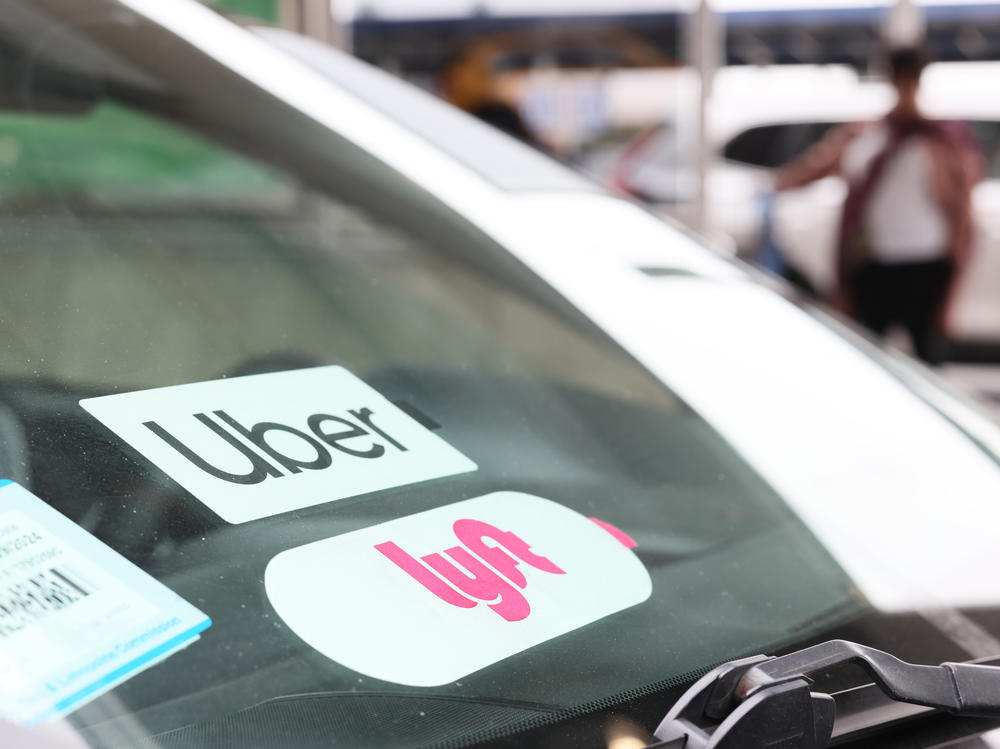Section Branding
Header Content
Uber and Lyft threaten to halt operations in Minneapolis over minimum wage law
Primary Content
Uber and Lyft have vowed to suspend service in Minneapolis. The announcement comes after a dramatic back-and-forth tussle with city leadership over the past year, which boils down to minimum wage pay for Uber and Lyft drivers.
Working with a coalition of ride-hail drivers, the Minneapolis city council passed a bill last August that would require Uber and Lyft to pay drivers a minimum of $1.40 per mile and $0.51 per minute — rates that the city approximates would add up to drivers earning the $15.57 minimum wage after expenses.
Uber and Lyft drivers are only paid when they're giving passengers a ride, not while they're waiting, so minimum wage calculations aren't based on hourly pay. Currently, drivers in Minneapolis make a median of $13.63 per hour after expenses, according to data from the state.
Shortly after the minimum wage bill was passed, Minneapolis Mayor Jacob Frey vetoed it, saying "this ordinance needs more work." Council members then brought forward another measure around driver pay, which passed last week in a 9-4 vote, despite Frey saying he'd veto that one, too. Then, on Thursday, the city council voted to override that mayoral veto.
Frey did not immediately respond to a request for comment.
"This is a David and Goliath story," Council Member Robin Wonsley, the lead author on the policy, said in a statement. "Regular working-class people took on two corporate giants and their political allies, and won."
The corporations are fighting back, however. Lyft spokesperson CJ Macklin said the company will shut down operations in Minneapolis when the law takes effect on May 1. He called it "deeply flawed" and said it was "jammed through."
Uber's senior director of public affairs, Josh Gold, said "We are disappointed the Council chose to ignore the data and kick Uber out of the Twin Cities."
Uber and Lyft have a long track record of battling minimum wage laws and driver protection bills in cities across the country, including in New York, Seattle and Denver. In California, Uber, Lyft and other gig companies spent more than $200 million to pass a ballot measure that ensures drivers won't get classified as employees in the state.
The companies treat their drivers as independent contractors, which means drivers pay for their own work expenses, like car maintenance and gas. Drivers don't get health insurance, sick pay or other employee benefits through the companies.
During Uber and Lyft's skirmishes in New York and California, the companies also vowed to stop service. Last year, the companies even said they'd halt operations in greater Minnesota after the state passed a separate minimum wage bill for ride-hail drivers. Gov. Tim Waltz vetoed that bill, saying "this is not the right bill."
Labor advocates and Minneapolis ride-hail drivers say they should have the same opportunities to earn a living wage and the same rights as other workers.
"The city council has done exactly what government should do for both fair labor and fair competition: ensure that workers are getting paid in ways that sustain their livelihoods," said Veena Dubal, a labor law professor at the University of California, Irvine School of Law. "Uber and Lyft are acting like petulant children. Frankly, if they do leave, high road alternatives will take their place. It is possible to have both consumer convenience and good wages."

